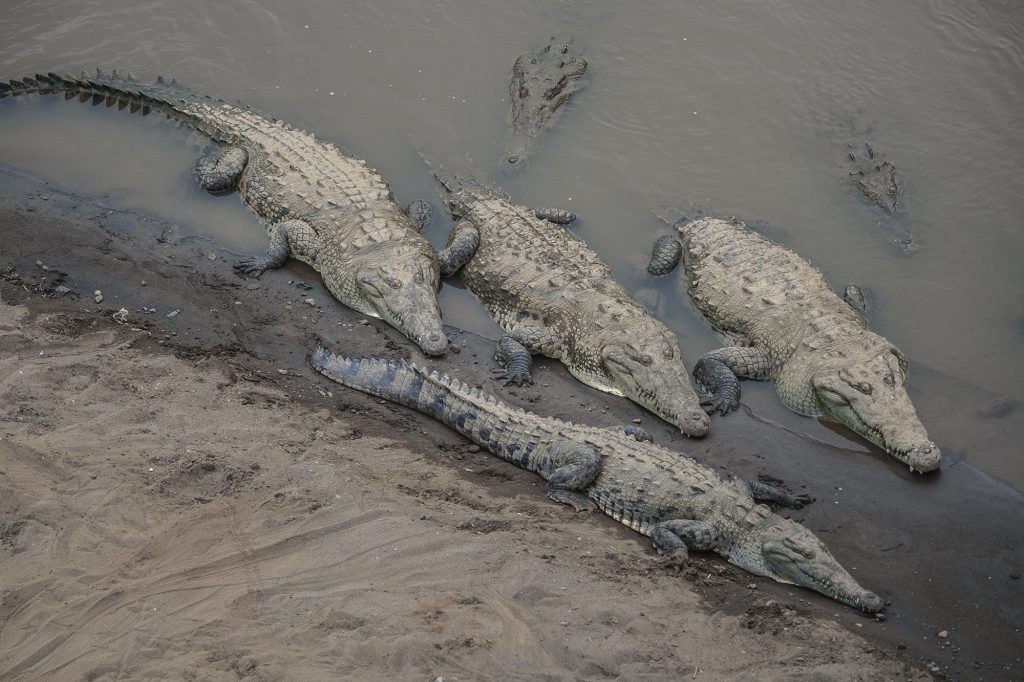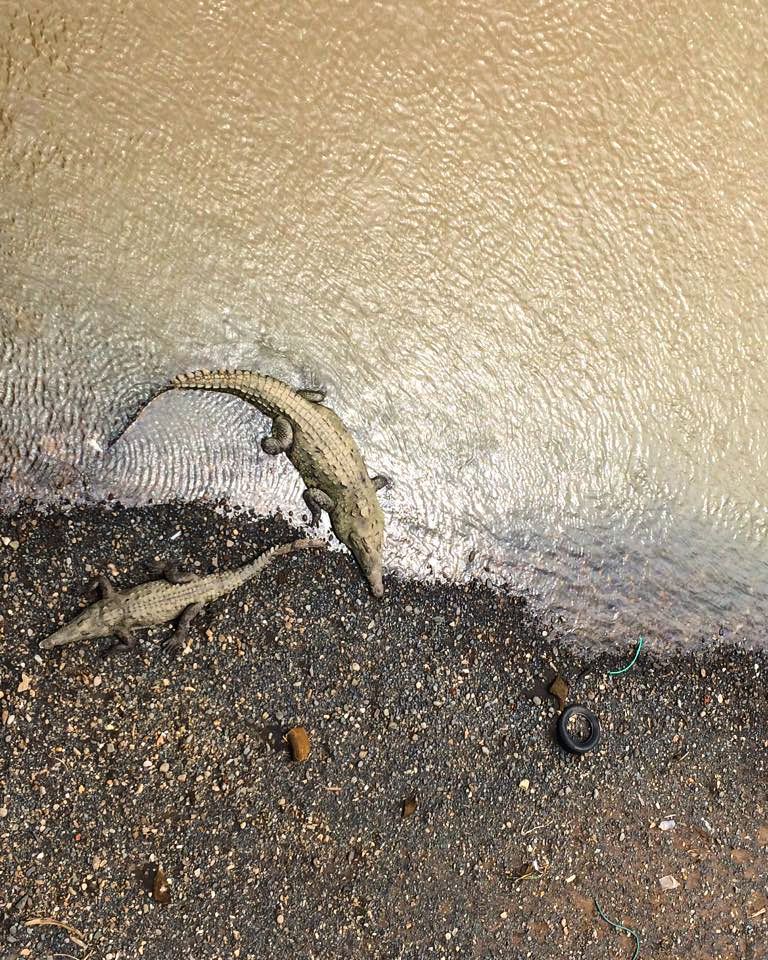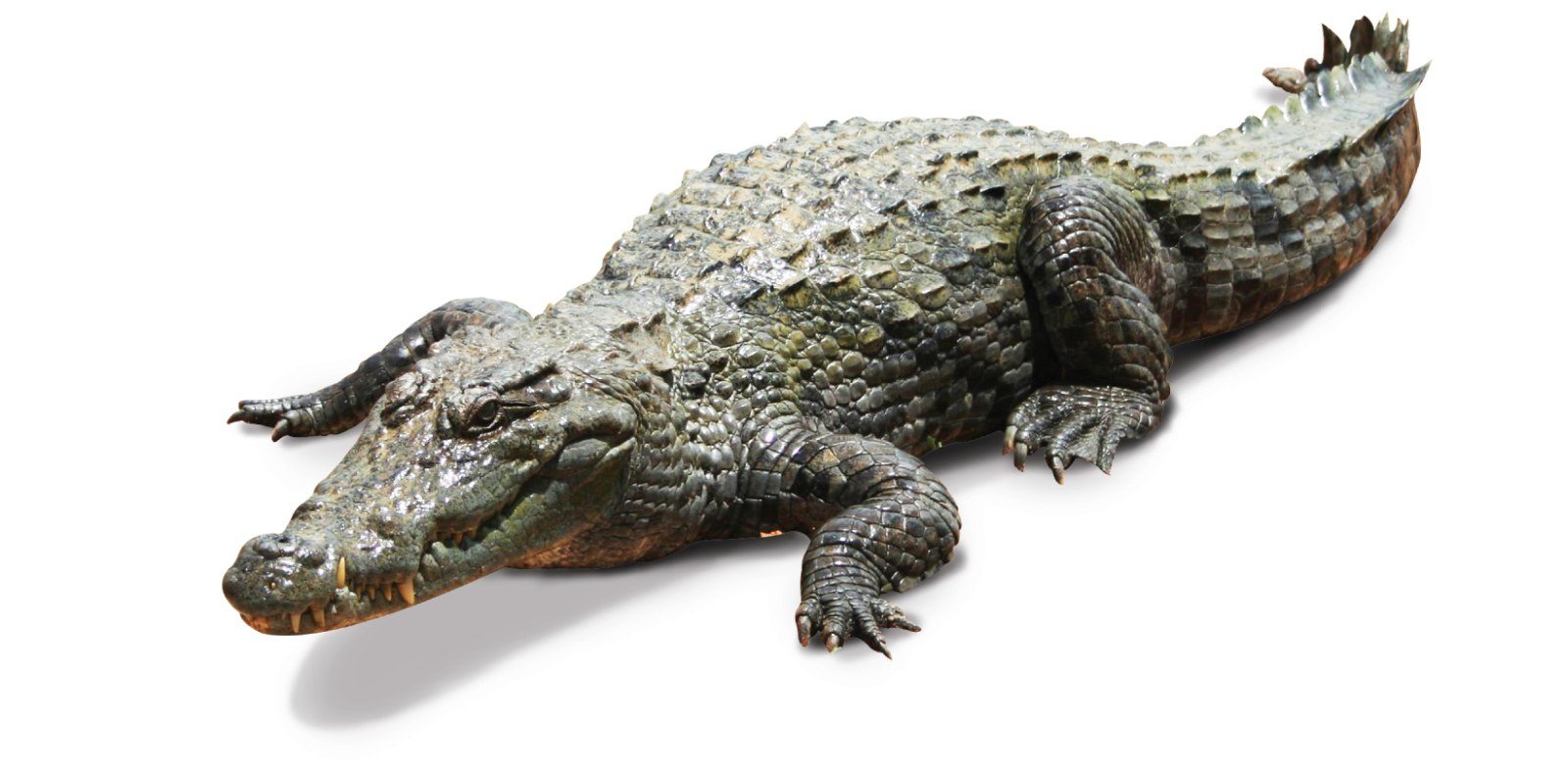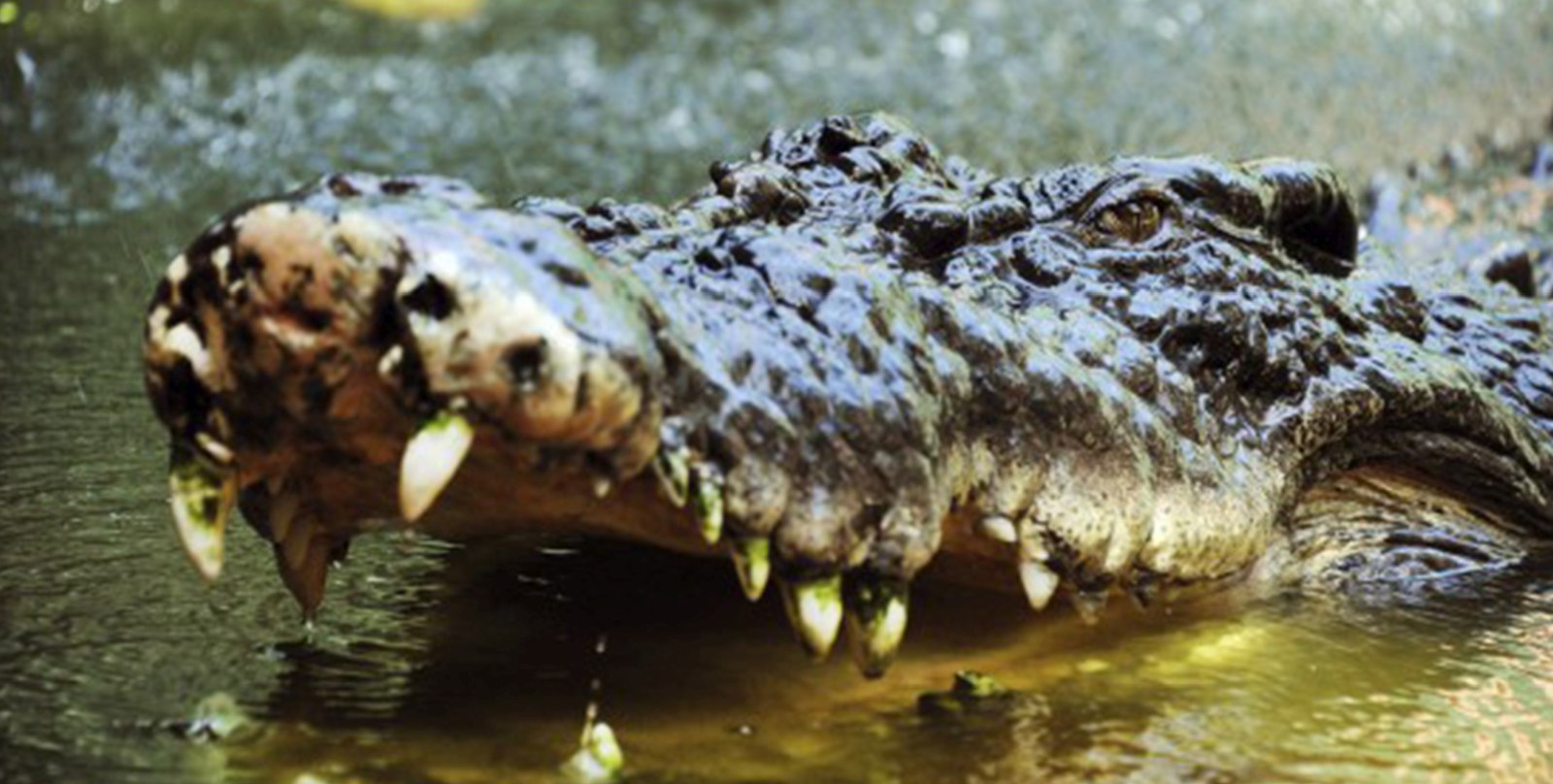
The news about the death of a child due to a crocodile attack in Matina de Limon and the appearance of another near the La Agonia hermitage in Liberia have led several people to comment that there is an overpopulation of this species in the country. Is that really true?
To find out, The Voice of Guanacaste consulted Laura Porras, a biologist with expertise in crocodiles, and Angie Sanchez, national wildlife coordinator for the National System of Conservation Areas (Spanish acronym: SINAC).
The short answer, according to explanations from both, is that there isn’t an overpopulation of crocodiles. Rather, what the country is going through is a repopulation of the species.
1. Why is there a repopulation?
Laura Porras Murillo, from the International Institute for Wildlife Conservation and Management from the National University (UNA), emphasized that this repopulation of crocodiles is occurring after a period when the species was used much more for commercial purposes. Sanchez expressed agreement with her.
The crocodile populations in the country have stabilized. They have recovered. But we don’t have any report that says there is an overpopulation. We see more crocodiles than before, but it’s because they’ve recovered,” the SINAC official specified.
Between the 1960s and 1970s, the world experienced an exploitation of crocodile skins in the fashion industry and in meat for human consumption, according to a report on the state of crocodiles and caimans in the country, published in 2019.
In Costa Rica, they were also hunted, especially by Nicaraguan merchants who came to the country in order to sell their skins and meat in their country of origin, according to that report.
That situation began to change in 1992, when the Wildlife Conservation Law went into force in Costa Rica. Crocodile hunting was banned, the practice declined, and since then, the population, which is currently threatened, has been recovering.
2. Why can’t an overpopulation of crocodiles happen?
The law of natural selection applies here: the strongest prey on the weakest, according to the UNA expert.
With wild animals, it’s very difficult for there to be an overpopulation, because they control themselves,” explained Porras.
The males are territorial during the reproductive season, so the strongest ones establish territories and displace the weaker ones from the rivers. Those crocodiles that run away are the ones that sometimes appear in a sewer or hidden in fields and irrigation canals, the expert added.
When you want to study the population of a species, in this case crocodiles, doing a count to estimate their populations is always recommended.
“For there to be an overpopulation, there has to be an exponential growth that never stops. The latest data shows that there is a stabilization in the population of these individuals,” said Porras.
3. Why do crocodiles show up in cities and other places where it isn’t normal to see them?
More and more, humans are filling habitats that were previously only for these animals and other species, so agricultural, urban and industrial borders continue to change. That’s why crocodiles and other animals have no choice but to go through the middle of cities or farm fields to reach a suitable area to live, explained Laura Porras.
In Guanacaste, some agricultural fields have irrigation canals, such as the ones in Cañas. These canals serve as a connecting highway for crocodiles and are part of their way of adapting to the expansion of the land that we humans use and inhabit.
Another reason why we could see them outside of rivers and oceans is the mating season. The weakest crocodiles hide wherever they can, even in sewers, and feed for a long time on whatever comes that way. They create a refuge there or may use it as a pathway and cross over to another habitat.

The crocodile population, which is currently threatened, has been recovering since the Wildlife Conservation Law was passed in 1992.Photo: Glorianna Ximendaz
4. Is it normal for crocodiles to attack humans?
It’s not normal behavior, according to biologist Laura Porras. Crocodiles see humans as a threat. That’s why they tend to run away from us, but there are factors that can alter the behavior of crocodiles.
For example, a person fishing on the banks of a river knee-deep in water and cleaning fish will attract the crocodile’s attention because of the food. This animal will want the fish and could accidentally bite the fisherman.
Ivan Sandoval, a biologist with a master’s degree in wildlife management and conservation, has dealt with crocodile attacks on people who live near riverbanks. During a conference, he explained that people might tie up their dogs so they don’t escape and the crocodile can interpret that as a notification that “dinner is served.”
The croc will remember that there’s food in that place and will live nearby to feed when it has the opportunity.
Another factor that alters the behavior of these animals is feeding them as part of tourist attractions. There are tour operators that make a practice of feeding crocodiles so that tourists can see the animal closer, and this modifies their reactions.
In 2016, for example, a crocodile attacked a tourist in Tamarindo. As a result of the attack, part of the tourist’s leg was amputated and the animal was transferred to a wildlife area in Nicoya.
In an interview with The Voice of Guanacaste, the wildlife coordinator for the Tempisque Conservation Area (Spanish acronym: ACT), Yeimy Cedeño, explained that the behavior exhibited by the female that inhabited the beach’s estuary had been induced by food provided by people.
That illegal feeding of wild animals is what caused this individual (the crocodile) to do what it did (attack a tourist), because it had become considerably brazen,” she said.
5. What should we do if we’re somewhere where crocodiles appear to be present?
- Ask locals if they know if there are crocodiles.
- Don’t approach them on land, since they are very fast over short distances.
- If you suspect that a crocodile is present, throw sticks or stones into the water and pay attention to any movement.
- Don’t go fishing, walking in the river, and don’t clean fish in the same place either.
- Don’t feed them.
- Don’t get into the water with them.
According to the national wildlife coordinator, Angie Solano, SINAC is currently working on creating protocols for:
- Immediate management of individual crocodiles (emergencies and dangerous animals).
- Addressing human-crocodile interaction.
- Assessment and technical studies of crocodilian populations that cause proven damage.







Comments